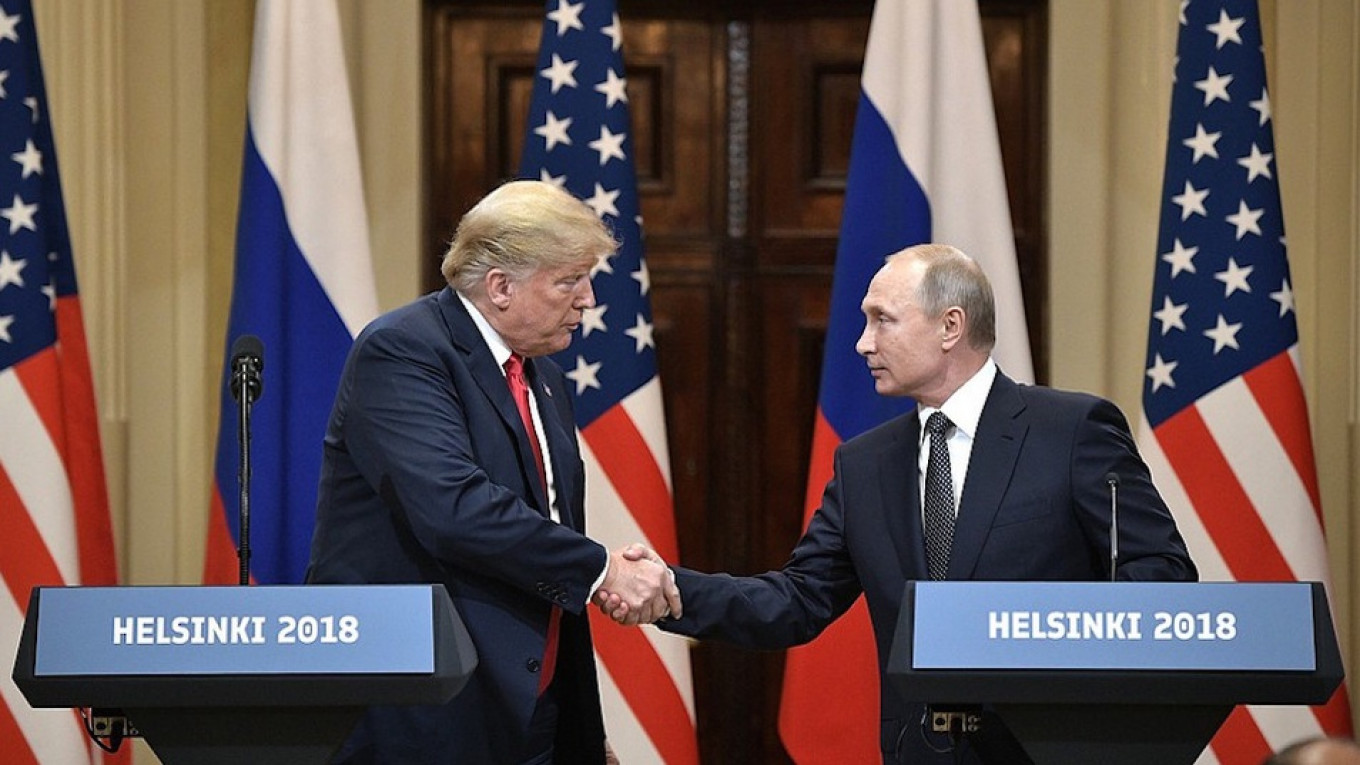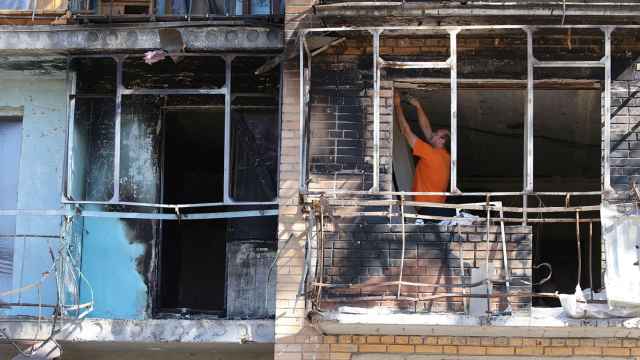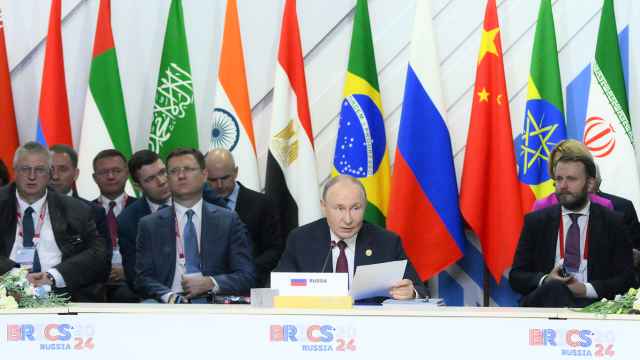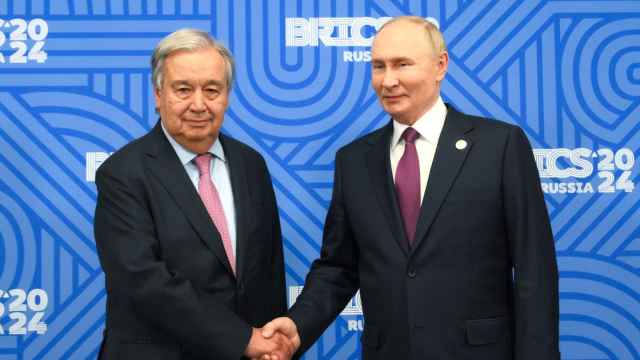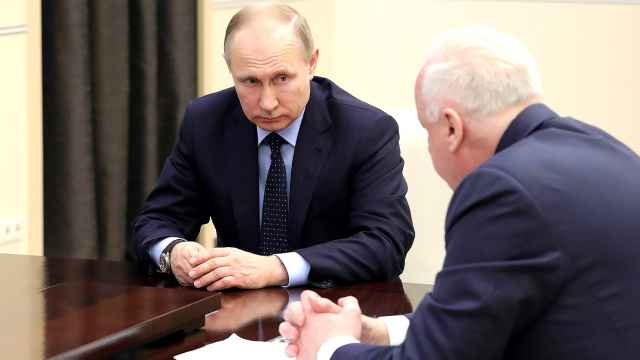The U.S.-Russian relationship continues to spiral downwards. The administration of U.S. President Donald Trump has imposed new sanctions on Russia, while Russian Prime Minister Dmitry Medvedev accused Washington of declaring economic war.
Despite the escalating tensions, a ray of hope for Russian-American cooperation still exists.
A leaked Russian document published by Politico this month revealed that during their July 16 summit in Helsinki, President Vladimir Putin presented Trump with a series of proposals related to nuclear arms control, as well as other measures to reduce the risk of military conflict between the U.S. and Russia. Putin's proposals promote American interests, and Trump should respond positively by directing his administration to begin immediate discussions with their Russian counterparts.
First, Putin suggested that Washington and Moscow extend the New Strategic Arms Reduction Treaty (New START) — a step that many high-level American, European and Russian nuclear experts have called for. New START would limit the total number of deployed strategic warheads each side can deploy to 1,550 — still more than enough to destroy each other and the planet many times over.
New START also contains a number of valuable verification and confidence-building measures. Each side is permitted up to 18 short-notice on-site inspections each year, as well exchanges of telemetry and other data. New START also established a Bilateral Consultative Commission to meet at least twice a year in Geneva. Both are critical confidence-building measures that reduce the risk of surprises and misunderstandings. Put simply, extending New START is in America’s national interest because it reduces the risk of nuclear war.
The Russian document also calls on both sides to "reaffirm commitment” to agreements covering “intermediate-range missiles.” That is a reference to the fate of the 1987 Intermediate-Range Nuclear Forces (INF) Treaty, which bans the two countries from developing or using nuclear and ground-launched ballistic or cruise missiles that can travel between 500 and 5,500 kilometers. American officials have accused the Russians of violating the treaty, provoking angry denials from Moscow. Maintaining the INF agreement in place is certainly in American interests, and it's important American officials understand whether or not it’s salvageable.
The third main suggestion in the document was for the two sides to "discuss the non-placement of weapons in space.” While an American-Russian treaty barring the placement of weapons of mass destruction in space already exists, it's certainly worth considering whether banning conventional weapons in space also promotes American interests. It's true that it's not quite as clear-cut as nuclear arms control. For one thing, the Trump administration might want to create a new branch of the military purely devoted to space warfare — an idea at odds with a new space treaty.
Moreover, as its testing of anti-satellite weapons demonstrates, China also seems determined to pursue space warfare capabilities. This means that any further space warfare treaty must necessarily include Beijing. However, neither of these factors prevents American officials from at least discussing Moscow's views on how to prevent the militarization of space.
Finally, military tensions in Eastern Europe were also addressed in the document, with Moscow proposing the two sides “take measures in order to prevent incidents while conducting military activities in Europe, as well as to increase trust and transparency in the military sphere.” Washington should heed this call.
After Russia's 2014 annexation of Crimea, NATO boasted of ending “all practical and military cooperation” with Russia, and since then many of the regular military-to-military communications between the two sides have been frozen. The problem with this breakdown in communications is that it greatly increases the risk that a minor military incident in Europe or elsewhere could rapidly escalate into a full-scale war — up to and including a nuclear exchange. Avoiding such a disastrous scenario is certainly in American as well as Russian interests.
To be clear, given Special Counsel Robert Mueller's ongoing Trump-Russia investigation, it's politically difficult for Trump to pursue any new agreements with Moscow. Furthermore, many issues still divide the two sides, most notably allegations of Russian interference in America’s 2016 elections as well as Moscow's ongoing hybrid war against Ukraine.
Ultimately though, it's in both Washington and Moscow's interests to isolate critical issues such as reducing nuclear tensions from the broader vicissitudes of the U.S.-Russian relationship. After all, even during the darkest days of the Cold War both Washington and Moscow remained committed to nuclear arms control.
Even when concrete agreements did not result from these endless discussions, the time spent trying to understand each other’s priorities, interests and fears helped reduce the possibility of a nuclear exchange. It’s critical that Putin and Trump agree to reactivate these types of discussions now. The potential cost of not doing so is simply too great.
Josh Cohen is a former USAID project officer involved in managing economic reform projects in the former Soviet Union. The views and opinions expressed in opinion pieces do not necessarily reflect the position of The Moscow Times.
A Message from The Moscow Times:
Dear readers,
We are facing unprecedented challenges. Russia's Prosecutor General's Office has designated The Moscow Times as an "undesirable" organization, criminalizing our work and putting our staff at risk of prosecution. This follows our earlier unjust labeling as a "foreign agent."
These actions are direct attempts to silence independent journalism in Russia. The authorities claim our work "discredits the decisions of the Russian leadership." We see things differently: we strive to provide accurate, unbiased reporting on Russia.
We, the journalists of The Moscow Times, refuse to be silenced. But to continue our work, we need your help.
Your support, no matter how small, makes a world of difference. If you can, please support us monthly starting from just $2. It's quick to set up, and every contribution makes a significant impact.
By supporting The Moscow Times, you're defending open, independent journalism in the face of repression. Thank you for standing with us.
Remind me later.



